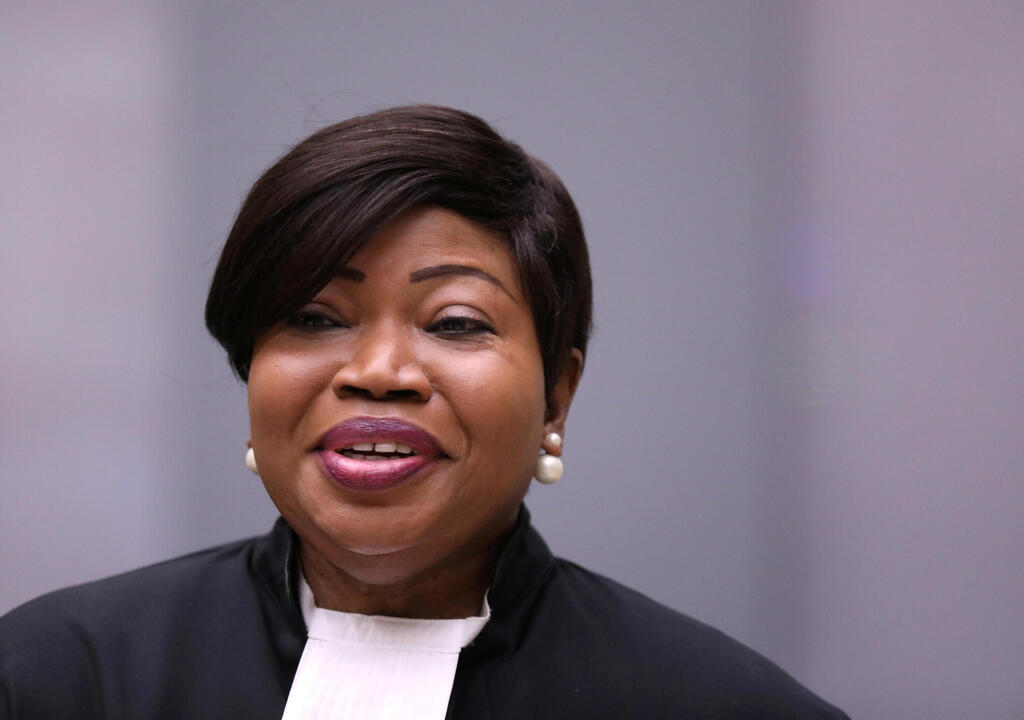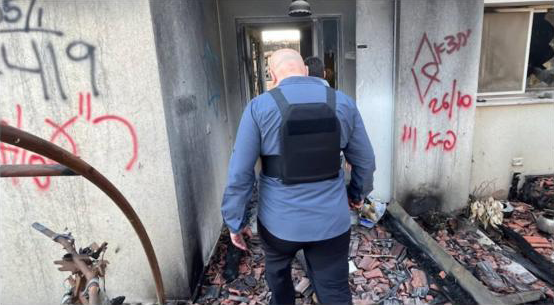When Karim Khan, ICC chief prosecutor, was elected, many in Israel breathed a sigh of relief, labeling him "pragmatic." Today, however, he is viewed as an adversary of Israel, sparking significant outrage with his dramatic call for arrest warrants against Prime Minister Benjamin Netanyahu and Defense Minister Yoav Gallant alleging that they have committed war crimes.
Karim Khan's statement
(Video: ICC )
Khan has asked the court's judges – despite Israel not being a member – to issue these warrants, along with warrants for senior Hamas officials, including Yahya Sinwar and Mohammed Deif, citing war crimes and crimes against humanity. His actions have shaken Israel, raising concerns about severe repercussions for its international standing.
Khan, 54, hails from Edinburgh, Scotland, and belongs to the Ahmadiyya Muslim Community – a branch that advocates a more moderate form of Islam and which is facing persecution in Pakistan, its country of origin. The community relocated its headquarters to the UK in the 1980s. Khan has stated that his experiences as part of this persecuted community fueled his passion for human rights advocacy.
Khan’s academic journey in law began at King's College London, one of the world’s top universities, focusing on human rights. His early career in the 1990s saw him serve as a prosecutor in the British Attorney General's Office, before he transitioned to the international stage in 1997, serving as a prosecutor at the International Criminal Tribunal for Rwanda, addressing crimes against humanity during the genocide in the African country.
In the 2000s, Khan switched roles to defend those accused in international legal proceedings. Notably, he defended former Liberian dictator Charles Taylor, charged in 2006 by a special UN court with murder, rape and using child soldiers. Khan protested vehemently when he felt the court in The Hague did not provide sufficient resources for Taylor’s defense. During the prosecutor’s opening statement, Khan dramatically stood up, demanding to leave the hearing. The judge ordered him to sit down, saying, "Mr. Khan, you do not have permission to leave." This bold act has since become legendary in legal circles, drawing both criticism and praise.
Despite receiving additional resources, Taylor was convicted and sentenced to 50 years in prison. Khan also defended Saif al-Islam, son of Libyan dictator Muammar Gaddafi, and William Ruto, now president of Kenya, who was charged with crimes against humanity following post-election violence in 2007 that resulted in 1,200 deaths. Khan successfully convinced the prosecution to drop charges against Ruto, but later faced allegations of political interference and witness intimidation, with one witness reportedly killed in December 2014.
Before his 2021 election as ICC prosecutor, Khan worked as an investigator for UN Secretary-General António Guterres, probing crimes against humanity committed by ISIS in Iraq. Elected for a nine-year term, Khan became the third person to hold the ICC prosecutor position since its establishment in 2002, succeeding Fatou Bensouda, currently High Commissioner to the United Kingdom, who had initiated an investigation against Israel for alleged crimes starting in 2014.
Under Khan, the investigation continued, expanding to include the October 7 massacre and subsequent war events. Recently, he made a bold move by requesting arrest warrants for senior officials from both Israel and Hamas.
Initially, Khan was seen as a favorable choice by Israeli officials, who described him as "pragmatic" and opposed to the "politicization" of the court. He even defeated an Irish candidate who had previously represented Palestinians in international proceedings. Khan’s visit to the Gaza border post-October 7 massacre reinforced his commitment. In his statement on the warrants for Sinwar and Deif, he highlighted the atrocities: "During my visit to Kibbutz Be’eri and Kibbutz Kfar Aza and the Nova Festival massacre site, I saw the devastation and heard firsthand accounts of unimaginable pain inflicted with extreme insensitivity."
Khan's tenure has shown his willingness to challenge powerful nations. In 2023, he issued an arrest warrant for Russian President Vladimir Putin, accusing him of personally overseeing the abduction of Ukrainian children. Russia, also not an ICC member, retaliated with a symbolic warrant against Khan.
Khan's move to issue arrest warrants for Israeli officials might strain his relationship with the United States, another non-member of the court. Recently, senior U.S. Congress members warned Khan of potential repercussions. Republican Senator Tom Cotton, for instance, referred to the impending arrest warrants against Netanyahu and Gallant as 'a farce." During Donald Trump's presidency, the U.S. sanctioned senior ICC officials over the investigation into Israel.
President Joe Biden on Monday slammed the International Criminal Court prosecutor's application for arrest warrants for senior Israeli officials including Prime Minister Benjamin Netanyahu, calling the move "outrageous."
"And let me be clear: whatever this prosecutor might imply, there is no equivalence - none - between Israel and Hamas. We will always stand with Israel against threats to its security." Biden said in a statement.
Khan remains undeterred by threats. Responding to the U.S. lawmakers' letter, he stated that threats against the court and its staff could be violations of international law. Professor Philippe Sands, who taught Khan at King's College, described him as "an independent, fearless and pragmatic prosecutor" with "enormous experience and real knowledge of conducting international criminal trials."
Khan emphasized that, while Israel has the right to self-defense, its methods in Gaza are criminal. "This right does not exempt Israel from complying with international humanitarian law. The means chosen – causing death, starvation, and immense suffering – are criminal," he asserted.
He reiterated that threats against him could be breaches of international law. "It is vital that my office and all parts of the court, including its independent judges, perform their work independently and impartially. Any attempt to harm, threaten, or unduly influence court officials must cease immediately. My office will not hesitate to act under Article 70 of the Rome Statute if this conduct persists."





